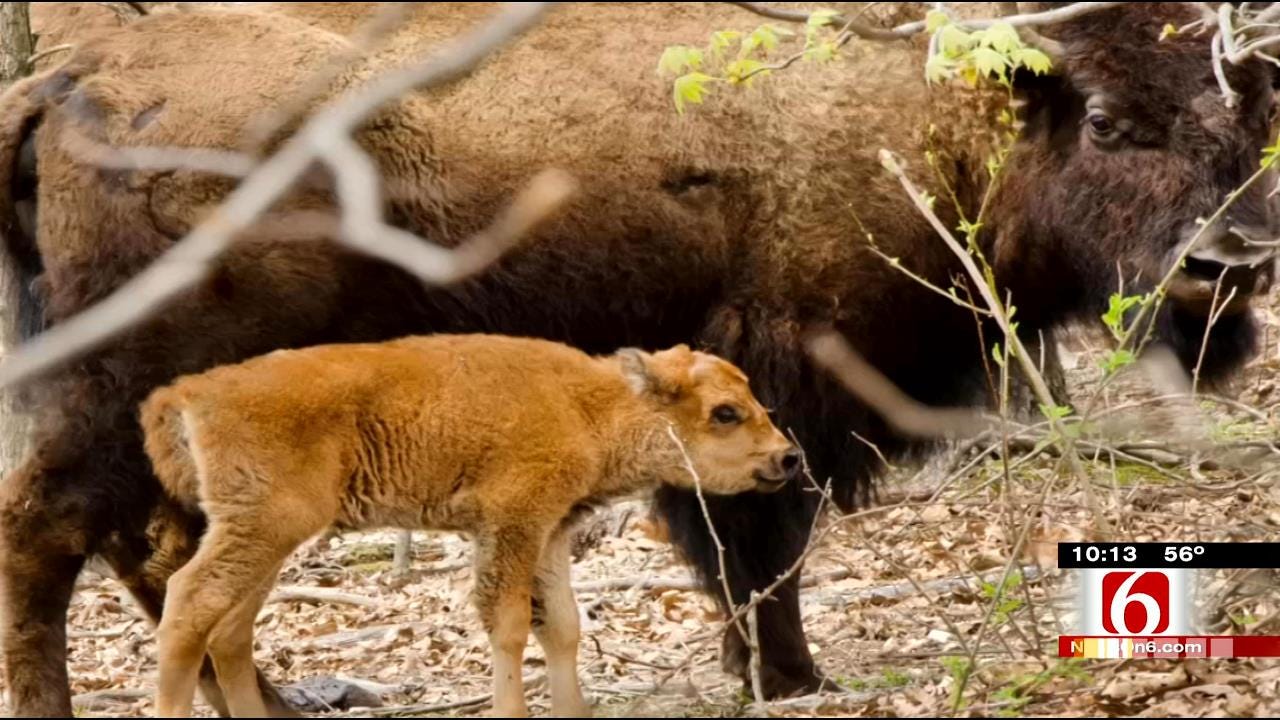Bison Herd Relocated To Cherokee Land Delivers First Baby
It's been six month since a special delivery of bison from the badlands of South Dakota to Cherokee land in Delaware County, and now more deliveries are happening.Wednesday, April 22nd 2015, 11:14 pm
It's been six month since a special delivery of bison from the badlands of South Dakota to Cherokee land in Delaware County, and now more deliveries are happening.
The Intertribal Buffalo Council takes surplus Bison from national parks and places them with Native American tribes across the country.
The bison herd that was delivered to the Cherokee tribe because of the program is thriving and growing, according to bison herdsman Chris Barnhart.
11/13/2014 Related Story: Cherokee Tribe Brings American Bison Back To Oklahoma
"Everything is greening up, it's springtime and everything is having babies," he said.
The first baby bison was born on April 8th - weighing in at about 100 pounds or so. Since then, eight more bison calves have been born, and there will possibly be more.
"I can't help but smile and think that, within a few years, what the numbers could be," Barnhart said.
The population of the herd could be 200 to 300 bison within a couple of years, and Barnhart is excited.
"I think that we're all proud,” he said. "Everybody's happy. You can't come out here any day and not see people driving up and down the road trying to get a shot at them, a glimpse at them."
But it's hard to get a glimpse of the baby bison. The animals' instincts to protect the youngest of the herd have them spend a lot of time in a wooded area, which is quite different than the canyons and high plains grasslands where they once roamed.
The female bison from the badlands of South Dakota, and 12 Bulls from Teddy Roosevelt National park in North Dakota are thriving.
"Probably they've all put on 100 to 150 pounds since we've gotten them here," according to Barnhart.
Having the herd is meaningful to the Cherokee people because of the bison's cultural and historical significance to the tribe and other Native Americans.
"We hunted buffalo back before the removal, which was actually called the Appalachian buffalo, which is now extinct," Barnhart said. "It's always special when you can revive a part of history. Not only our history, but all the tribes' history."
The Cherokee Nation will do genetic testing, blood work and ear tagging on the new calves later this fall, once new corrals are built to process the bison.
Another 200 acres will open up at the first of next month to accommodate the growing bison herd.
More Like This
April 22nd, 2015
April 15th, 2024
April 12th, 2024
March 14th, 2024
Top Headlines
April 24th, 2024
April 24th, 2024
April 24th, 2024
April 24th, 2024













